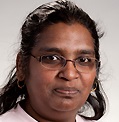Preface
- Page ID
- 4789
\( \newcommand{\vecs}[1]{\overset { \scriptstyle \rightharpoonup} {\mathbf{#1}} } \)
\( \newcommand{\vecd}[1]{\overset{-\!-\!\rightharpoonup}{\vphantom{a}\smash {#1}}} \)
\( \newcommand{\dsum}{\displaystyle\sum\limits} \)
\( \newcommand{\dint}{\displaystyle\int\limits} \)
\( \newcommand{\dlim}{\displaystyle\lim\limits} \)
\( \newcommand{\id}{\mathrm{id}}\) \( \newcommand{\Span}{\mathrm{span}}\)
( \newcommand{\kernel}{\mathrm{null}\,}\) \( \newcommand{\range}{\mathrm{range}\,}\)
\( \newcommand{\RealPart}{\mathrm{Re}}\) \( \newcommand{\ImaginaryPart}{\mathrm{Im}}\)
\( \newcommand{\Argument}{\mathrm{Arg}}\) \( \newcommand{\norm}[1]{\| #1 \|}\)
\( \newcommand{\inner}[2]{\langle #1, #2 \rangle}\)
\( \newcommand{\Span}{\mathrm{span}}\)
\( \newcommand{\id}{\mathrm{id}}\)
\( \newcommand{\Span}{\mathrm{span}}\)
\( \newcommand{\kernel}{\mathrm{null}\,}\)
\( \newcommand{\range}{\mathrm{range}\,}\)
\( \newcommand{\RealPart}{\mathrm{Re}}\)
\( \newcommand{\ImaginaryPart}{\mathrm{Im}}\)
\( \newcommand{\Argument}{\mathrm{Arg}}\)
\( \newcommand{\norm}[1]{\| #1 \|}\)
\( \newcommand{\inner}[2]{\langle #1, #2 \rangle}\)
\( \newcommand{\Span}{\mathrm{span}}\) \( \newcommand{\AA}{\unicode[.8,0]{x212B}}\)
\( \newcommand{\vectorA}[1]{\vec{#1}} % arrow\)
\( \newcommand{\vectorAt}[1]{\vec{\text{#1}}} % arrow\)
\( \newcommand{\vectorB}[1]{\overset { \scriptstyle \rightharpoonup} {\mathbf{#1}} } \)
\( \newcommand{\vectorC}[1]{\textbf{#1}} \)
\( \newcommand{\vectorD}[1]{\overrightarrow{#1}} \)
\( \newcommand{\vectorDt}[1]{\overrightarrow{\text{#1}}} \)
\( \newcommand{\vectE}[1]{\overset{-\!-\!\rightharpoonup}{\vphantom{a}\smash{\mathbf {#1}}}} \)
\( \newcommand{\vecs}[1]{\overset { \scriptstyle \rightharpoonup} {\mathbf{#1}} } \)
\(\newcommand{\longvect}{\overrightarrow}\)
\( \newcommand{\vecd}[1]{\overset{-\!-\!\rightharpoonup}{\vphantom{a}\smash {#1}}} \)
\(\newcommand{\avec}{\mathbf a}\) \(\newcommand{\bvec}{\mathbf b}\) \(\newcommand{\cvec}{\mathbf c}\) \(\newcommand{\dvec}{\mathbf d}\) \(\newcommand{\dtil}{\widetilde{\mathbf d}}\) \(\newcommand{\evec}{\mathbf e}\) \(\newcommand{\fvec}{\mathbf f}\) \(\newcommand{\nvec}{\mathbf n}\) \(\newcommand{\pvec}{\mathbf p}\) \(\newcommand{\qvec}{\mathbf q}\) \(\newcommand{\svec}{\mathbf s}\) \(\newcommand{\tvec}{\mathbf t}\) \(\newcommand{\uvec}{\mathbf u}\) \(\newcommand{\vvec}{\mathbf v}\) \(\newcommand{\wvec}{\mathbf w}\) \(\newcommand{\xvec}{\mathbf x}\) \(\newcommand{\yvec}{\mathbf y}\) \(\newcommand{\zvec}{\mathbf z}\) \(\newcommand{\rvec}{\mathbf r}\) \(\newcommand{\mvec}{\mathbf m}\) \(\newcommand{\zerovec}{\mathbf 0}\) \(\newcommand{\onevec}{\mathbf 1}\) \(\newcommand{\real}{\mathbb R}\) \(\newcommand{\twovec}[2]{\left[\begin{array}{r}#1 \\ #2 \end{array}\right]}\) \(\newcommand{\ctwovec}[2]{\left[\begin{array}{c}#1 \\ #2 \end{array}\right]}\) \(\newcommand{\threevec}[3]{\left[\begin{array}{r}#1 \\ #2 \\ #3 \end{array}\right]}\) \(\newcommand{\cthreevec}[3]{\left[\begin{array}{c}#1 \\ #2 \\ #3 \end{array}\right]}\) \(\newcommand{\fourvec}[4]{\left[\begin{array}{r}#1 \\ #2 \\ #3 \\ #4 \end{array}\right]}\) \(\newcommand{\cfourvec}[4]{\left[\begin{array}{c}#1 \\ #2 \\ #3 \\ #4 \end{array}\right]}\) \(\newcommand{\fivevec}[5]{\left[\begin{array}{r}#1 \\ #2 \\ #3 \\ #4 \\ #5 \\ \end{array}\right]}\) \(\newcommand{\cfivevec}[5]{\left[\begin{array}{c}#1 \\ #2 \\ #3 \\ #4 \\ #5 \\ \end{array}\right]}\) \(\newcommand{\mattwo}[4]{\left[\begin{array}{rr}#1 \amp #2 \\ #3 \amp #4 \\ \end{array}\right]}\) \(\newcommand{\laspan}[1]{\text{Span}\{#1\}}\) \(\newcommand{\bcal}{\cal B}\) \(\newcommand{\ccal}{\cal C}\) \(\newcommand{\scal}{\cal S}\) \(\newcommand{\wcal}{\cal W}\) \(\newcommand{\ecal}{\cal E}\) \(\newcommand{\coords}[2]{\left\{#1\right\}_{#2}}\) \(\newcommand{\gray}[1]{\color{gray}{#1}}\) \(\newcommand{\lgray}[1]{\color{lightgray}{#1}}\) \(\newcommand{\rank}{\operatorname{rank}}\) \(\newcommand{\row}{\text{Row}}\) \(\newcommand{\col}{\text{Col}}\) \(\renewcommand{\row}{\text{Row}}\) \(\newcommand{\nul}{\text{Nul}}\) \(\newcommand{\var}{\text{Var}}\) \(\newcommand{\corr}{\text{corr}}\) \(\newcommand{\len}[1]{\left|#1\right|}\) \(\newcommand{\bbar}{\overline{\bvec}}\) \(\newcommand{\bhat}{\widehat{\bvec}}\) \(\newcommand{\bperp}{\bvec^\perp}\) \(\newcommand{\xhat}{\widehat{\xvec}}\) \(\newcommand{\vhat}{\widehat{\vvec}}\) \(\newcommand{\uhat}{\widehat{\uvec}}\) \(\newcommand{\what}{\widehat{\wvec}}\) \(\newcommand{\Sighat}{\widehat{\Sigma}}\) \(\newcommand{\lt}{<}\) \(\newcommand{\gt}{>}\) \(\newcommand{\amp}{&}\) \(\definecolor{fillinmathshade}{gray}{0.9}\)Course Description:
This course explores topics in discrete mathematics, including the language of logic, set theory, enumeration, probability, and statistics. Basic elements of probability and statistics will be used to solve problems involving data organization, description, and interpretation. Furthermore, it explores topics in Euclidean geometry.
This course is one of the required courses for the Minor in Mathematics for Elementary Education program at Mount Royal University (MRU) and was designed especially for elementary education students. This course aims to introduce future elementary (grades K-6) educators to the basic language of mathematics and to give them an introduction to abstract concepts in set theory, geometry, probability, and statistics. The relationship of concepts to the elementary mathematics curriculum is emphasized. We started offering this course in Fall 2013. I taught this course for 5 years since its inception. I created these lecture notes to facilitate student learning. This course partially fulfills the need for mathematics to be taught as a language with reasoning and gives students a spatial sense. Students will be exposed to numbers and number sense in a second course: MATH 2150 Higher Arithmetic.
The following chart gives a quick overview of further learning opportunities at MRU as they relate to this course's scope:
| Chapter | If you want to learn more in-depth, you can take this course at MRU. |
|---|---|
| 3 | MATH 2150 Higher Arithmetic |
| 4 | MATH 1103 Introduction to Geometry |
| 5, 6 | MATH 1102 Introduction to Statistical Reasoning |
Course Learning Outcomes:
Upon successful completion of this course, students will be able to:
- show knowledge of fundamental concepts in mathematics,
- encourage mathematical investigations,
- demonstrate an understanding of mathematical reasoning,
- reflect major algebraic ideas such as algebra as a set of rules and procedures, algebra as the study of structures, algebra as the study of the relationship between quantities,
- do problem-solving by using mathematics, and
- perform mathematical calculations that involve measurements, estimation, similarity, and probability.
A Note on Formatting:
Throughout this resource, practice exercises can be found at the end of each chapter. No answer key is provided for some questions. This is to encourage students to experience mathematics as a synthetic and creative field and also to attend class to ask questions. The "Thinking Out Loud" sections are to prompt discussion - take these up with your classmates and see if you can justify your position using what you know.
Acknowledgments:
The creation of this resource would not have been possible without significant help from a variety of sources. They are, in no particular order,
- Provost's Teaching and Learning Innovation Grant, Mount Royal University
- Professor Delmar Larsen, LibreTexts, for his unconditional support
- The Academic Development Center, Mount Royal University
- The Media Production Group, Mount Royal University
- The Department of Mathematics and Computing, Mount Royal University
- The Faculty of Science & Technology, Mount Royal University
- Former students, who have taken this class in person, and who donated their class notes as reference material, namely: Ms.Amy Rebisz and Ms. Marianna Moodie.
- Pieter van Staalduinen, Undergraduate Research Assistant at Mount Royal University
- Undergraduate student James Bergeron, Mount Royal University
Thank you all so very much for your help, insights, and resources.
If you find any errors or mistakes, please send me an email stating the section number.
Pamini Thangarajah, PhD
Calgary, Alberta
September 2017, edited in September 2019.
email: pthangarajah@mtroyal.ca
Thumbnail: Academic knowledge is a second-order form of knowledge that seeks abstractions and generalizations based on reasoning and evidence. (Public Domain; Pearson Scott Foresman donated to the Wikimedia Foundation).


